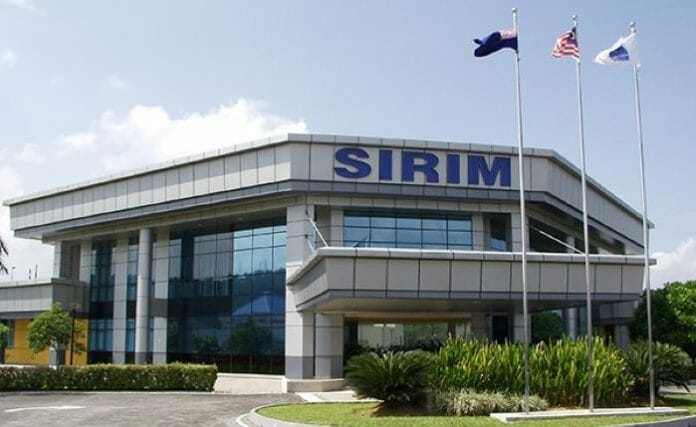Industrial research plays a pivotal role in Malaysia in pursuing economic growth and global competitiveness, especially during this challenging period. As the nation strives to become a high-income and knowledge-based economy, research and development (R&D) has become imperative to foster innovation, create new technologies, and enhance industry productivity. It urges and explores the need for industrial research in Malaysia and highlights the crucial role played by the Standards and Industrial Research Institute of Malaysia (SIRIM) as the main backbone of development, focusing on its partnership with academia to drive innovation.
Malaysia’s economy has experienced remarkable growth over the past few decades, largely driven by manufacturing, electronics, and services industries. However, in today’s fast-paced and competitive global landscape, mere reliance on traditional industries is insufficient to sustain long-term growth. Embracing industrial research and innovation is crucial for several reasons. Therefore, innovation is the key to staying ahead of the competition. Through R&D efforts, companies can develop new products, services, and technologies that cater to emerging market demands and create a competitive edge internationally. Industrial research helps businesses streamline processes, optimize production methods, and reduce costs. Malaysian industries can enhance their productivity and efficiency by adopting innovative technologies and best practices.
By investing in R&D, Malaysia can diversify its economic base beyond traditional sectors. This diversification creates a more resilient and sustainable economy, reducing the country’s vulnerability to external shocks. Multinational corporations seek countries with a strong culture of innovation and a skilled workforce. A robust industrial research ecosystem can attract FDI, leading to technology transfer and knowledge spillovers that benefit the local economy. Industrial research can tackle various societal challenges, including environmental sustainability, healthcare, and urbanization. Solutions derived from R&D efforts can contribute to Malaysia’s sustainable development goals.
SIRIM, founded in 1969, has spearheaded industrial research and development in Malaysia. It serves as a government-owned research institute under the Ministry of International Trade and Industry (MITI), providing essential support and guidance to various industries. In addition, the key contributions of SIRIM to Malaysia’s development are more needed, especially to strive towards the development of Malaysia.
SIRIM is at the forefront of establishing national and international product, process, and service standards. These standards ensure quality, safety, and compatibility, boosting consumer confidence and promoting global trade for Malaysian products. SIRIM operates specialized research centers that cater to specific industries, including aerospace, automotive, and electronics. These centers conduct cutting-edge research, technology development, and problem-solving, driving innovation in respective sectors.
SIRIM operates state-of-the-art laboratories that offer testing and certification services for products. Through rigorous testing, SIRIM validates product compliance with quality and safety standards, facilitating market access for businesses. SIRIM collaborates with local industries and academic institutions to facilitate technology transfer and commercialization. It ensures that research outcomes find practical applications in the market, contributing to economic growth. SIRIM provides training programs and workshops to enhance the skills and knowledge of industrial professionals. It also empowers the workforce to stay updated with the latest advancements, fostering a culture of continuous improvement.
While SIRIM plays a vital role in industrial research, the collaboration between industry and academia is equally critical in driving innovation and knowledge creation. The synergy between these two sectors brings together practical industry insights and academic rigor, leading to more impactful research outcomes. Industry-academia collaboration ensures that research focuses on solving real-world challenges faced by industries. Academics gain insights into practical problems, while industry professionals benefit from cutting-edge research and expertise. By collaborating with academia, industries can leverage the research findings and innovations developed in academic institutions. It accelerates technology transfer and enhances the commercialization of research outcomes.
Universities often possess specialized facilities and expertise that industries may not have. Collaborating with academia grants industries access to advanced research infrastructure and the knowledge of subject matter experts. Collaborations between industry and academia promote the development of a skilled workforce. Industry professionals can teach and mentor, while students gain practical experience through internships and industry-linked projects. Industry-academia collaboration nurtures an entrepreneurial culture, inspiring students and researchers to explore commercialization opportunities and establish startups based on their innovative ideas.
Collaborations between the automotive industry and material science departments in universities have led to the development of lightweight materials that enhance vehicle fuel efficiency and reduce emissions. Partnerships between medical device companies and health sciences faculties have resulted in the creation of innovative medical technologies, contributing to better patient care. Academic institutions working with manufacturing industries have developed eco-friendly production processes and waste reduction techniques, aligning with Malaysia’s sustainable development goals.
Industrial research is an essential driver of Malaysia’s economic growth and development. SIRIM, as the main backbone of the country’s industrial progress, has been instrumental in promoting research, establishing standards, and fostering innovation. However, the collaboration between industry and academia is equally crucial in driving meaningful research outcomes and advancing technological innovation. As Malaysia strives for economic diversification and global competitiveness, a strengthened industry-academia collaboration will be pivotal in shaping a more vibrant and innovative industrial landscape. By embracing research-driven innovation and nurturing knowledge-sharing partnerships, Malaysia can position itself as a dynamic player in the global economy and achieve sustainable prosperity for its citizens.
Ts. Dr. Hj. Muhammad Khusairy Bin Capt. Hj. Bakri is a Postdoctoral Research Associate at Composite Materials and Engineering Center, Washington State University (WSU), a Faculty-Staff member for the Center of Bioplastics and Biocomposites (CB2) for North Dakota State University, United States of America, and a Lead Research and Development Sector of the Association of Professional Technicians and Technologists (APTT) Sarawak, Listed and indexed in the “Science and Research” category on the Fifth Edition of “Successful People in Malaysia” by Britishpedia as a successful young researcher in Malaysia published by British Publishing House Ltd., working on composite materials from the forest and industry products.









